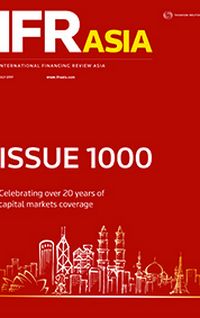The Chinese renminbi was one of the world’s most sought-after currencies throughout 2011, and its growing use outside of mainland China spawned big opportunities in the bond markets. Multinationals including BP, Volkswagen and Unilever all launched debut Dim Sum bonds during the year, after global fast food chain McDonald’s opened the market in August 2010.
“Dim Sum was on the agenda of pretty much every Fortune 500 company very quickly,” said Stephen Williams, head of global banking for South-East Asia at HSBC, who was previously head of debt capital markets for Asia Pacific.
“Everyone had a foothold in China, everyone had funding needs in China and they thought this was a silver bullet. At first there was some frustration around the lack of guidelines, and the best we could advise was: ‘Why don’t you apply and see what happens?’ Most of them got the answer they wanted. For a period of time it was a very cost-efficient way to raise money.”
McDonald’s, which opened its first restaurant in China in 1990, made a significant contribution to the offshore renminbi menu in Hong Kong 20 years later.
Its Rmb200m (US$29.4m) 3% three-year bond arrived shortly after a string of major reforms and was the first Dim Sum issue from a multinational corporate issuer. China Development Bank had launched the first offshore renminbi deal in 2007, but the market really took off after China expanded its trade-settlement pilot project and the Hong Kong Monetary Authority allowed offshore entities to issue bonds.
With its knowledge of China and international reach, McDonald’s had wide appeal for both Asian and global investors. The book closed within two hours and was several times covered, reflecting the strength of the brand and rarity value of the deal.
McDonald’s also introduced international practice to the Dim Sum arena, issuing the bond off its EMTN programme based on New York law. It revised the programme to include a clause allowing it to issue in renminbi, rather than going through the time-consuming and costly route of preparing stand-alone documentation.
The experiment showed a way for foreign issuers to issue renminbi bonds quickly and at low cost. Standard Chartered Bank (Hong Kong) was the lead manager.
To view all special report articles please click here and to see the digital version of this report please click here .
To purchase printed copies or a PDF of this report, please email gloria.balbastro@thomsonreuters.com .


